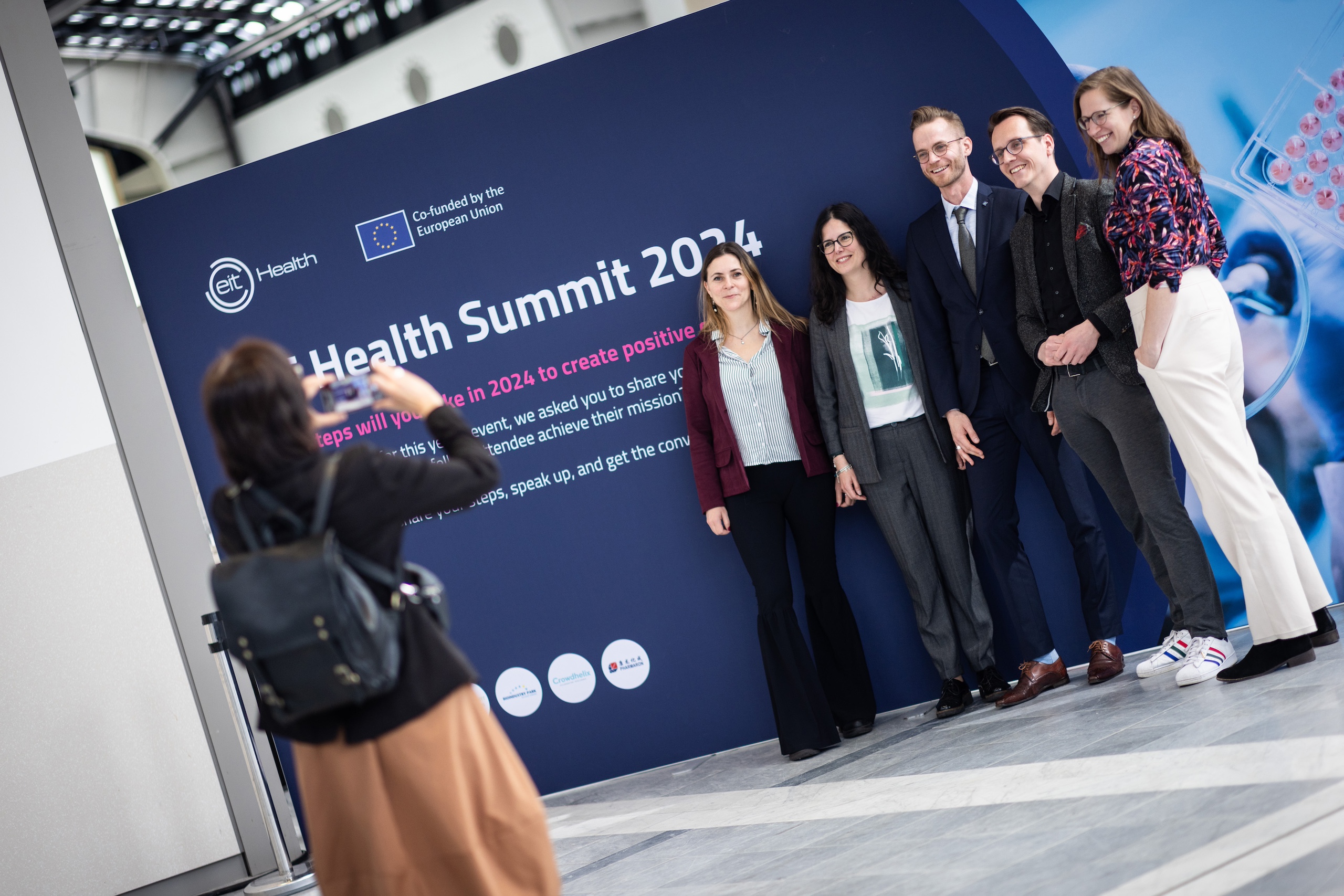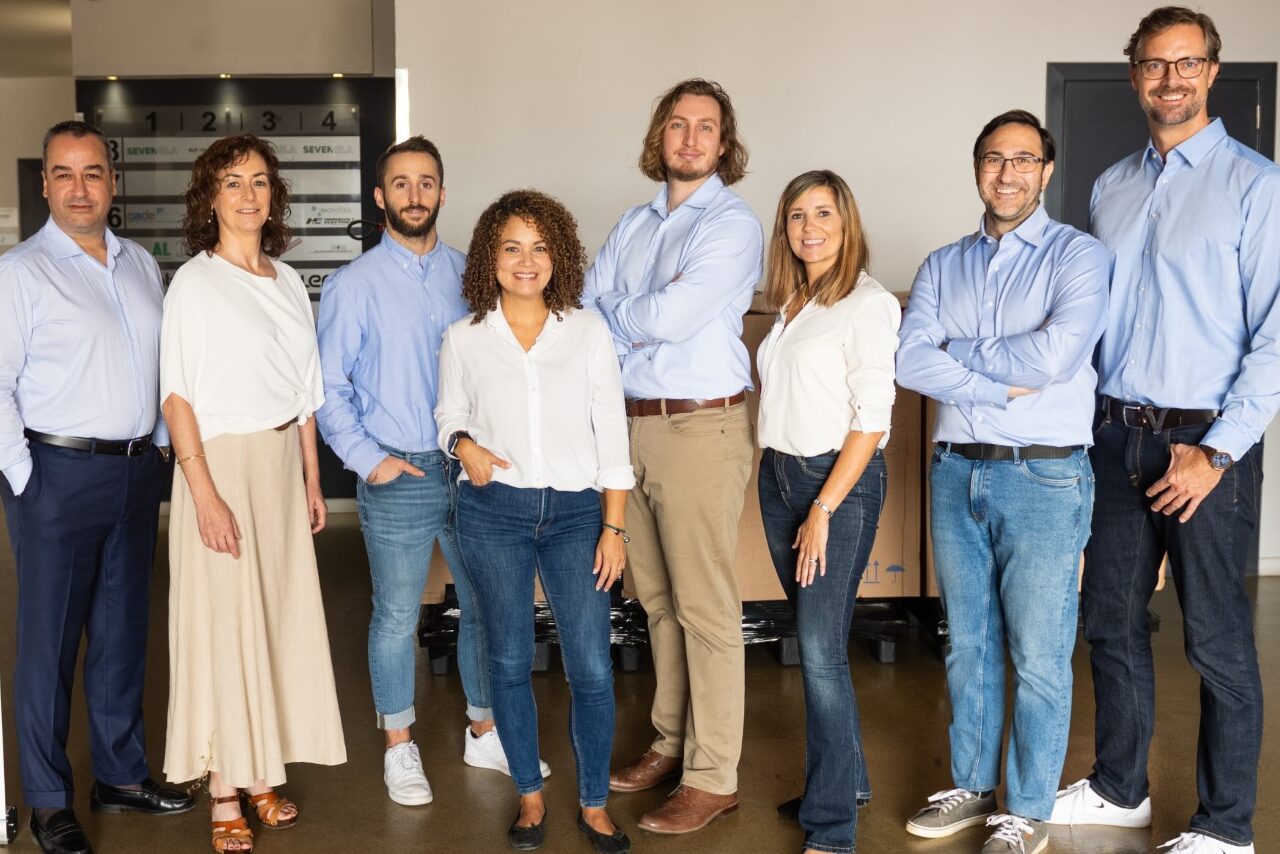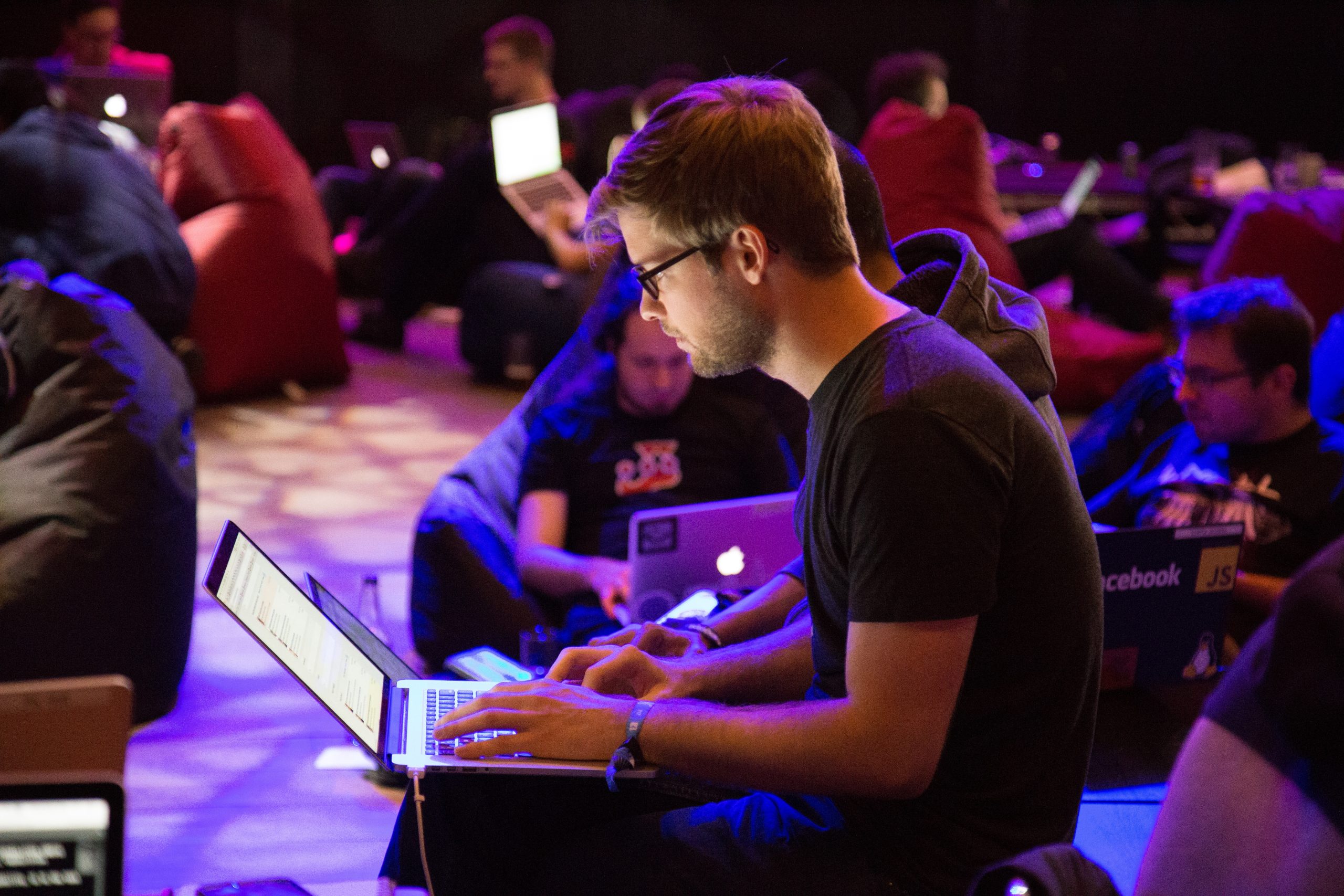17th April 2024
Nine start-ups from across Europe have secured their places at the EIT Health Catapult Final. The finalists represent the most promising European start-ups across life sciences and healthtech.
Currently in its eighth year, the EIT Health Catapult boosts the development of European health start-ups by exposing them to leading experts and international investors. Winners often go on to achieve impressive growth and investment.
In 2023, two finalists from the 2022 competition received significant funding. Biotech winner, SolasCure secured a €12.7M Series B round, and Digital Health finalist, AZmed, secured €15M in series A funding.
While more recently, 2023 Digital Health winner, deepeye, received a €2.5M investment just few months after the Catapult final pitch, and 2023 Digital Health finalist, Surge, raised €7.5M last month, following its second round of funding.
Antoine d’Hollander, Investment Director at Capricorn, said: “With the EIT Health Catapult programme, investors can get access to the best healthcare start-ups in Europe. I expect to connect with a lot of these start-ups during the event.”
Meet the finalists
Nine finalists will compete during the final at the health.tech conference on June 5th and 6th, while the twenty semifinalists still have an opportunity of being awarded some of the Catapult Industry Partners’ prizes.
Life sciences
Finalists:
CELEX Oncology (UK) focuses on treating aggressive, invasive and metastatic cancer forms by turning aggressive cancer into a benign state, allowing patients to live with the disease.
Integra therapeutics (Spain) is developing new gene writing tools that help to improve the scope, efficiency and safety of advanced therapies.
POLYGON Therapeutics (France) is a cardio-immunology biotech that is aiming to improve CVD care by targeting and regulating the immuno-inflammatory responses at work.
Semi-finalists:
Celtic Biotech (Ireland) is developing novel candidate therapies for treating solid cancers and pain in humans.
G.ST Antivirals (Austria) is a clinical-stage biopharmaceutical company that is applying an innovative host cell-based strategy to develop broad-spectrum antivirals against respiratory tract infections.
Lactocore (Germany) is developing innovative medicines to address the unmet medical needs of millions of patients suffering from mental and metabolic disorders.
Orgavalue (Portugal) is aiming to eliminate the organ transplant list with their pioneering biotechnology for bioengineering fully transplantable human organs to address the mismatch in organ donation and organ shortage.
Pan Cancer T (Netherlands) is developing the next generation of T cell therapeutics for hard-to-treat solid tumours exploiting untapped tumour selective targets.
R-nuucell (Portugal) is developing innovative chemotherapeutics to treat the unmet medical need for the treatment of metastatic and resistant cancers.
Tezted (Finland) is developing a complete diagnostic test for tick-borne diseases that offers unprecedented accuracy and efficiency.
Healthtech
Finalists:
Acorai (Sweden) is developing the first handheld, non-invasive intracardiac pressure (ICP) monitor to improve workflow efficiencies and patient outcomes.
Digistain (UK) is developing a risk profiling test for hormone receptor-positive breast cancer, providing oncologists with decision-making data in just 15 minutes.
Dymium (Germany) is a game-changing medical system for the residue-free extraction of kidney stones. Using a biocompatible suspension to magnetise kidney stone fragments, stone fragments can be extracted magnetically without leaving residues.
Five Lives (France) is developing a mobile solution for the prevention, early detection and treatment of dementia risk factors with the goal of helping ageing populations make the most of increased life expectancies and reducing healthcare costs.
nen (Spain) is developing evidence-based digital therapeutics to help kids fighting cancer, their families, and their doctors manage pain through play by leveraging gamification of cognitive behavioural therapy to modulate pain and improve a child’s overall well-being and outcomes.
Saphenus Medical Technology (Austria) is tackling phantom pain for amputees with the feeling of prosthesis by adapting the prosthesis to the body of amputees so that they feel it on their limbs.
Semi-finalists:
Bearcover (Germany) is developing a robotic solution for nursing homes that can see through walls, check on residents, and improve staff workloads and resident care via increased checks at night, leading to reduced resident falls.
Exhalation Technology (UK) is providing unique technology to revolutionise respiratory health.
FEYENALLY (Poland) is developing the eyeTEST™ mobile app, enabling patients to self-examine their eyes’ refractive error at home using their smartphone.
fideliomed (Italy) is developing digital and diagnostic solutions for early diagnosis and effective management of iron deficiency and anaemia in primary care, enabling doctors and pharmacists to make informed decisions at the point of care.
iYoni (Poland) is the first medical app for women’s reproductive health. It offers precise, AI-based fertility and cycle predictions, lab tests and treatment assessment, personalised advice from leading reproductive experts, and support on sexual wellbeing.
Look HealSee (France) is developing proprietary software with a virtual reality headset to help eyecare practitioners screen the main ocular pathologies more simply and efficiently.
Lumetry Diagnostics (Austria) is developing the first pCO2 home monitoring solution for patients who suffer from hypercapnic COPD, allowing patients to control their pCO2 status in their blood from the comfort of their homes.
MEDICUD (Italy) is developing Dryum, an incisional negative pressure wound therapy device tailored to reduce the risk and the insurgence of post-surgical complications. Among them, surgical site infection is the riskiest.
neuroClues (Belgium) has the ambition to become the brain’s stethoscope by empowering clinicians with biomarkers, allowing them to identify neurological disorders (Parkinson’s disease, Alzheimer’s, or multiple sclerosis) years before visible symptoms and provide precision medicine to their patients.
Plio Surgical (Ireland) is creating a minimally invasive implant to tackle one of the most dreaded complications of colon cancer surgery – leakage following tumour removal.
TRAK (Spain) is a digital rehabilitation and therapeutic exercise-based treatment monitoring software through AI for healthcare professionals, allowing the health centre to refer patients home for further rehabilitation.
Verdify (The Netherlands) is creating a secure system for personalised nutrition management that can be easily implemented in healthcare, facilitating healthcare professionals in suggesting fully tailored nutrition programmes to their patients and supporting their adherence.
Xtremedy Medical (Ireland) aims to reduce the suffering of patients and speed up recovery from chronic infections. They have developed a novel surgical device that uses pulsed field ablation to target microbial contaminants in wound margins while protecting the host tissue.
The EIT Health Catapult Finals
Each team will now pitch their solution at the health.tech conference, where healthtech start-ups get to meet investors and EIT Health Partners from the worlds of business, research and education, and debate the most pressing topics facing our industry.
The nine finalists will compete for the Catapult prize of €30,000 in each category (life sciences and healthtech). The audience will also decide which of the finalists will win the “Alex Casta Audience Award”, which gives the winner a unique opportunity to have their logo displayed on the Nasdaq Tower in New York’s Times Square, where it will be seen by millions of people worldwide.
This year, the EIT Health Catapult has also joined forces with leading healthcare players in Europe to further support the most promising start-ups. Amazon Web Services (AWS), Astrazeneca, eg technology, Lusiadas, and Nasdaq, will award the Industry prizes providing the winners with their expertise and support.
Here’s how our Catapult industry partners will be supporting those that win their prizes:
- AWS will offer promotional credits and consultancy to all semi-finalists.
- Astrazeneca will connect winners to its corporate teams worldwide for projects roll-outs.
- eg technology’s ‘Most Innovative Product’ prize offers engineering support in product development to three companies.
- Lusiadas Saude will offer their three winners the opportunity of a pilot at the hospital group.
The health.tech conference will see our vibrant community of world-leading healthcare innovators come together to envision a long-lasting agenda for healthcare in Europe.
The EIT Health Catapult Final and award ceremony will happen in Munich on June 5th and 6th. Learn more and register your interest.
Our main takeaways from the EIT Health Summit 2024

Read the key highlights from the EIT Health Summit in Rotterdam.
MOWOOT secures over €2M from Next Generation funds

Learn how EIT Health accelerated their journey.
Join the heartbeat of healthtech in Munich this June

Discover the third annual health.tech conference.